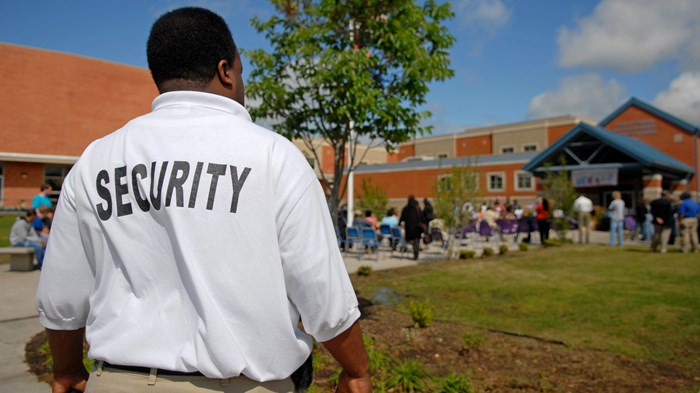
In the aftermath of several high-profile church shootings, most Protestant pastors say their congregations have taken some precautions to protect those in attendance.
Since 2000, 19 fatal shootings have taken place at
Christian churches, while gunmen have also taken lives at other
religious sites like Jewish synagogues, a Sikh temple and an Amish
school.
Around 4 in 5 Protestant pastors (80%) say their church
has some type of security measure in place when they gather for worship,
according to a survey from Nashville-based LifeWayResearch.
“Churches are some of the most common gatherings in any
community, and that makes them targets,” said Scott McConnell, executive
director of LifeWay Research. “Most churches understand this and have
responded in some way.”
(Editor’s note: Last week, President Donald Trump signed
new legislation authorizing $375 million in federal grants to help
houses of worship and other nonprofits improve their capacities to
defend against violence.)
Security specifics
The most common form of preparation is making an
intentional plan. Almost 2 in 3 pastors (62%) say their church has an
intentional plan for an active shooter situation.
The more people who show up to worship services each
week, the more likely the church is to have made plans for a potential
gunman.
Pastors of churches with 250 or more in attendance (77%)
and those with 100 to 249 (74%) are more likely to have an intentional
plan than those with 50 to 99 in attendance (58%) or those with less
than 50 in their worship service each week (45%).
More than a quarter of churches (28%) have radio communication among security personnel.
African American pastors (47%) and pastors of other
ethnicities (46%) are almost twice as likely as white pastors (25%) to
take this step.
The question of guns in church is very much a live
debate among pastors, as close to half of pastors (45%) say part of
their security measures include having armed church members.
Combining this with the percentages who say they have
uniformed police officers or armed security personnel on site, 51%
intentionally have firearms at their worship services as part of their
security measures.
Evangelical pastors (54%) are more likely than mainline pastors (34%) to say they have armed church members.
Half of pastors in the South (51%) and West (46%) say this is the case compared to a third of those in the Northeast (33%).
Pentecostal (71%), Baptist (65%) and Church of Christ
pastors (53%) are also more likely than Methodist (32%), Lutheran (27%)
and Presbyterian or Reformed pastors (27%) to say they have armed church
members as part of their security measures.
Other churches place their emphasis on keeping all guns away from the worship service.
More than a quarter (27%) have a no-firearms policy for
the building where they meet and 3 percent have metal detectors at
entrances to screen for weapons.
African American pastors are the most likely to
implement these strategies, with 50 percent saying they have a
no-firearms policy and 8 percent deploying metal detectors.
Almost 1 in 5 pastors (18%) say their church has taken
none of the precautions asked about in the survey, while 2 percent
aren’t sure.
“While methods vary, most churches start with the
resources they have to prepare for what they hope will never happen,”
said McConnell. “With planning, a church can be prepared without being
distracted or paralyzed by the threat. Pastors are trying to balance two
responsibilities—protect those on the inside, while being as welcoming
as possible to those on the outside.”

Comments
Post a Comment